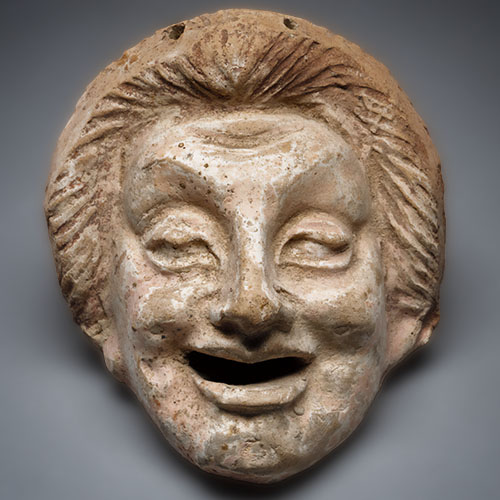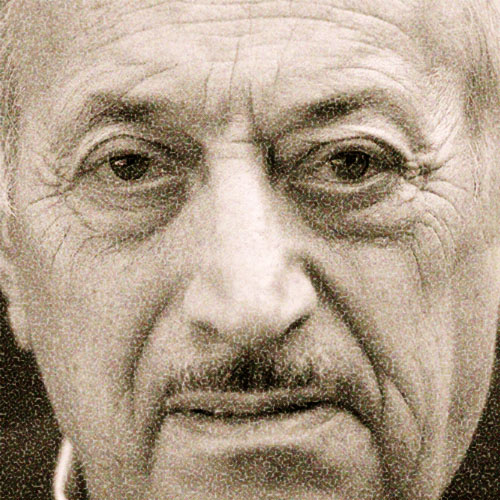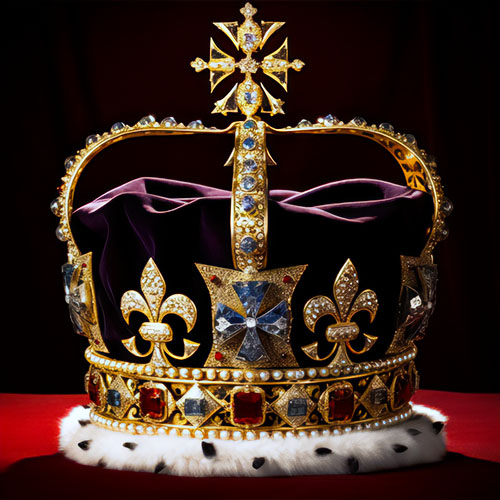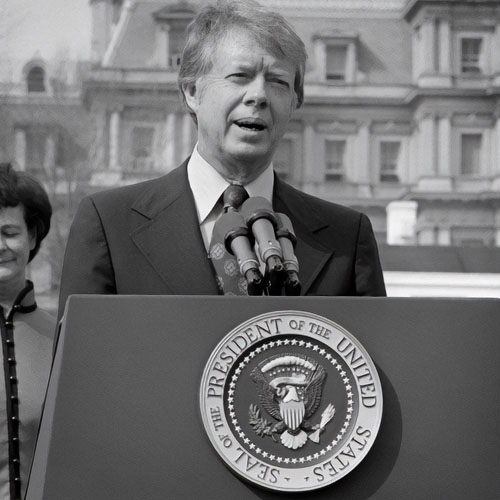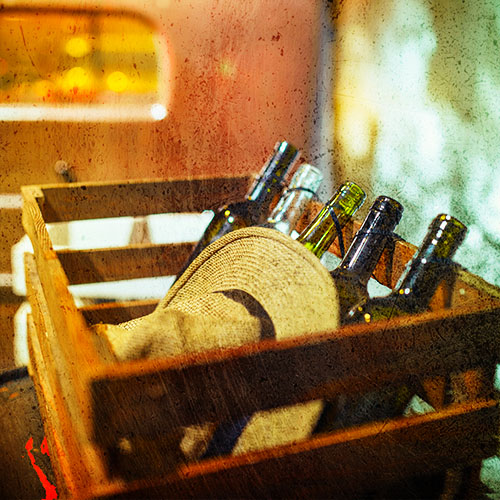An exclusive interview with the champion of Reverend Al Sharpton disenfranchised African-Americans who has become one of the most hated men in the country.
I Am Loud and Visible!
In a city known for racial explosions, the mere mention of the Reverend Alfred Sharpton to New Yorkers is akin to lighting the fuse to a thousand sticks of dynamite. Nobody is neutral about Al Sharpton; dispassion and reason do not apply when his name pops up in conversation. To his champions he is the savior of the disenfranchised blacks who are unable to get justice from a white power establishment. His detractors call him the worst kind of opportunist, a tanner of the fires of racial distrust with his own personal agenda.
Once his self-proclaimed movement seeking justice for blacks was confined to New York City; now it appears in places like Los Angeles, London, and Israel. Although he shares the leadership with attorneys Alton Maddox and C. Vernon Mason, it is Sharpton who seems to willingly play to the media’s appetite for hyperbole. And he has thus become its major target. For Reverend Al, the nasty editorial, cartoons, and hate mail is a willing price to pay for bringing justice to the victims of racial hate and violence—real or perceived. When the parents of Michael Griffith, a black man chased by white youths to his death on a parkway in Howard Beach, Queens, asked Sharpton to get justice for their son, the reverend was able to force the city to appoint a special prosecutor.
Similarly, when young Yusuf Hawkins was killed by whites in Bensonhurst (in Brooklyn), Sharpton organized, cajoled, pissed off many, and once again forced the white power structure to make sure justice was done. But by this time, Sharpton’s style was also earning the hatred of thousands of whites.
His notoriety reached its peak when 15-year-old Tawana Brawley alleged that she was raped by white men, beaten, and her body smeared with feces. The Brawley family summoned Sharpton, Maddox, and Mason, who claimed that local and state authorities weren’t doing their jobs. At that moment the circus began. Whites almost uniformly believed the teenager was lying and there was no crime. The black team argued it was holy war that symbolized the mistreatment of black women at the hands of powerful white men. Ultimately, most impartial observers felt that Tawana’s story was a hoax. But race had replaced rape as the issue, and Sharpton and the others have steadfastly refused to retreat one iota from their publicly held positions. And to this day, peoples’ feelings about Tawana Brawley are almost exactly the same as their feelings about Al Sharpton.
I have known Sharpton for ten years and have disagreed with most of what he has to say for that long. But I consider him a serious and important leader, as well as a personal friend. He is certainly not the buffoon some of the media have presented. It is vital for all people-white and black, Americans and those overseas—to hear Sharpton’s words for themselves, unfiltered by any reporter or cameraman. Nothing amazed me more than many white peoples’ reactions when they heard I was talking to Sharpton. Comments ranged from “How can you?” to “You should kill the bastard.” This vitriol prompted my first question.
How does it feel to be one of the most hated men in America?
I see myself in a dying vocation of being an active minister who submits to my beliefs as opposed to opinion polls or what is popular at the moment. If that makes me hated, I can live with it. I’m a minister first and everything I do stems from that. I started preaching as a boy. My basic way of thinking originates from my ministry; it is based on my perception of a world that should function on fairness and justice, guided by a supreme being who set up a standard of laws that mankind ought to go by. My second tenet is to be active and try to make that happen. I think that kind of individual is a very rare person today. I think, unfortunately, most people, even black leaders, try to deal politically in terms of being well liked or well favored, rather than doing what they think is right and just.
Tell us about your childhood.
A lot of who I am comes from my mother. She raised me. My father left when I was ten. We did not speak to one another for 26 years. When I was stabbed in 1990, he called me in the hospital. He was a businessman, and was able to buy a house for us in a middle-class area of Queens. After they separated, my mother worked as a domestic and I grew up on welfare. She was a very religious woman and would tell me stories about segregated Alabama, where she grew up and where she’s now moved back to. But she always taught us that we could make it and that we had to fight to make it.
Surely, the absence of your father had to affect you.
Most definitely, by not having a father, you attempt to search for father figures. In my situation, because I was a boy preacher, my role models were ministers and political figures. First, Bishop [Frederick D.] Washington, who licensed me, then Congressman Adam Clayton Powell, who caught my attention when I was ten years old. Another great influence was Jesse Jackson, when I became his youth director in New York at the age of 14. Had I not become mesmerized by Adam Clayton Powell and Jesse Jackson, and then later nurtured by the “godfather of soul,” James Brown, I would never had become the activist-minister I am today. Had my father stayed home, I wouldn’t have had a need for the Jesse Jacksons or James Browns, and I might not have outgrown a cloistered black middle-class life.
Is that what it’s all about? Are you in search of a father to please?
Well, I think in many ways, in the beginning, you want to please your mentors; then as you grow, you want to prove something to yourself. In the things that I do, I see my activism as a continuation of the work of the Martin Luther Kings and Jesse Jacksons—the mass civil-disobedient nonviolent movement that has been abandoned for the last 15 years. What I really try to accomplish was done 20 years ago. Jackson and King didn’t appear as militant, because there were people to the left of them who were advocating arms struggle and arms revolution. So what I do looks extreme because there’s nobody very radical out there. But in reality, compared to what has happened historically, what I do is not that radical. Look, I have had nonviolent marches in segregated areas. Martin King did that in Cicero, he did it in Selma, he did it in Montgomery. So really I see myself continuing some of my father figures’ work in my own style.
What exactly are you fighting against?
Let me give you some examples from my own emotions: When I was young, Adam Clayton Powell was my hero. The sun rose and set with Adam. Then when I had to watch him stripped of all his power, to watch him hang his head and cry, is something I’ll never forget. I’ll also never forget having to see Don King, one of the wealthiest men to come out of my community, walk down the aisle of federal court, a number, like a pocketbook snatcher. Or having ridden in James Brown’s private jet in the sixties and seventies, and to visit him in jail in the nineties. That kind of thing has to have a traumatic effect on anyone’s view of American culture. These were some of my heroes, blacks at their best, and I have seen them totally humiliated by the system, which gave me a sense of bitterness even growing up.
But did you ever stop to think that it wasn’t racism that brought them down, but their own greed or culpability?
Okay, let’s start with Don. Don King’s criminality was when he was younger. For people to set out a multimillion-dollar sting operation—which I know about, ’cause the F.B.I. guys tried to sting me as well—a multimillion-dollar sting operation at Don King, but not going for Bob Arum, not going for Lou Duva, not going for anyone white in boxing, to me that smacks of racism. They talk about the sins of James Brown—whatever they were, I’m certain they were no greater than those of Elvis and his cohorts. James Brown runs from the police in the South, where any black man with good sense would run from a posse, and James Brown does two and a half years in jail. Zsa Zsa Gabor slapped a cop—she does two days. So what I’m saying is, I’m looking at their fall compared to other people, but what saved those other people was the color of their skin.
But didn’t the same white power establishment also bring down a white Richard Nixon?
Nixon fell, but Nixon didn’t go through what Adam went through. Nixon didn’t face criminal indictment or a jail term. You can’t compare the punishment. Adam was stripped of 23 years’ seniority in Congress; Nixon still draws attention at this minute and is out there as a respected world figure.
Doesn’t this simplify everything to just white versus black?
Best example I can give on how I see it is in my own personal life. If I was a white 37-year-old guy who had the endorsements of white congressmen in the city—as I have been endorsed by black congressmen—the white media—as does the black media now—with legendary white entertainers endorsing me—as black entertainers do now—I would never be questioned, but I’m black. I am the great question mark, and all that I do is under suspicion. I have helped hundreds of people, have won cases like Howard Beach, Bensonhurst, and others; yet I’m questioned at every point, because the double standard in America is if you’re black, you have to always prove yourself. Every day of your life, you get up and start at zero again. There’s never a point where you are unquestioned.
Who talks for the black community?
Nobody talks for the total black community, or the total white community. All of us talk for a constituency of that community. Certain things need to be cleared up. In Bensonhurst, in Howard Beach, in London, and in Crown Heights, I was called in by the victims’ families. The question that white Americans ought to ask is, why are the victims calling in people like Mason, Maddox, and Sharpton, who liberals like Jack Newfield say are not black leaders? If they’re not leaders, then why do the victims call them? That’s question one. Point two is when I go in I’m able to produce hundreds, if not thousands, of people to march and bring issues to the attention of the public. The fact of the matter is, no one would have known what Howard Beach was if I didn’t march there—or Bensonhurst, or Crown Heights, or London. There have been other black kids innocently killed, but nobody knew about it because nobody did anything about it. When I come in and do something about it, I’m not exploiting the issue, I’m creating the issue. The issue is injustice, and the ones that are exploiting it are the ones that come in and say to a family that you shouldn’t talk to Al Sharpton, you should talk to this “responsible” guy over there. It is arrogant for them to feel they can choose for the victim who should defend him. You’re a fool if that’s what you think. If I want to play you in a football game, you want to pick a quarterback that you know can beat my pants. People have the right to choose who they’re comfortable with. What America needs to mature is to ask the question of why are all these people calling on an Al Sharpton. Maybe the leadership you’re listening to is not the leadership that has the pulse of the black community. Because the leadership that white America’s listening to obviously is not the leadership that black America’s calling on at the time of crisis.
But many people think that you, Mason, and Maddox have your own agenda, and justice is not the only issue.
Let’s argue that. The result of Howard Beach was a special prosecutor who ended up putting three guys in jail. What does the white media say and do? Do they commend Sharpton for getting a special prosecutor? No, they commend the prosecutor for getting the indictment that he would have never gotten if I hadn’t gone in and gotten him appointed!
You look back at Howard Beach with great pride, but don’t you feel at all differently about the Tawana Brawley case?
The only thing I would have done differently there is that I would have gotten affidavits from witnesses who spoke to me before I went public. People who had evidence to back up Tawana’s story backed down when it was time to go on record.
But there have to be more reasons than that to account for why so many people have a problem with Tawana Brawley’s credibility.
I think there is a problem with believing black women raped by white men. Compare the case of the Central Park jogger with that of Tawana. The jogger, a white woman, was found unconscious, but before any scientific tests were performed, everybody accepted the fact she was raped by black teenagers. Everybody was prepared to believe it. From day one, Tawana was questioned. It seems when a white cries rape, she is believed; a black is questioned.
You’re saying that no whites accused of raping blacks have been convicted?
Very few and far between. There is a problem here. Every black newspaper, and most black people, supported Tawana. Given that fact, don’t you think the white establishment should be concerned that there is so much suspicion of the legal system? Is it not possible the system has been unfair to blacks?
Didn’t you use Tawana Brawley to exploit that suspicion for your own ends?
That’s not true. The first time I ever heard the Tawana Brawley story was on CBS news. However, the American public believes that Tawana and I set out somewhere and figured out what to say. Tawana Brawley sent for Alton Maddox, C. Vernon Mason, and Al Sharpton because after cooperating with the authorities for two months, nothing happened. For two months she had been represented by a local N.A.A.C.P. lawyer. To say that this whole thing was a hoax perpetrated by three advisers of Brawley, you overlook the fact that her story was already told and publicized. All we did was a better job of getting the authorities to pursue the case.
And you’ve never doubted her?
No, and I don’t think anybody has disproved it to me. The grand jury said it didn’t have enough significant evidence to indict. It didn’t say Tawana Brawley was lying. Look, if I have to choose between a 15-year-old girl and a state which always lies, I’ll choose the girl.
But 15-year-olds have been known to make up stories.
We went over the story many times with her and never were we shaken in our belief she was telling the truth. Rather than question Tawana, you should question those who were coming down on the girl. It was unfair to her that they not only attacked her, but took shots at her advisers which were unreal. There was one guy who worked in the building where I have my office and would sometimes ride around with me. It was a casual relationship, but one day I read that he’s my chief of staff. So when I read that lie in the newspaper, why should I believe other lies about Tawana Brawley in the same newspaper?
Given what many whites feel about you, did you ever think that you may have hurt Tawana’s case?
It’s very possible that the target was to stop the movement and not Tawana Brawley. Well, that would only make it clear why Tawana did come to us. If it wasn’t for the movement, then the Tawana Brawleys would have no hope. We are necessary for people like her—somebody to stand up and fight when nobody else will.
How do you feel about Louis Farrakhan as a black leader?
He is probably one of the most charming and personable individuals I have ever met.
But he’s an anti-Semite.
That tag was put on Farrakhan to disrupt the Jesse Jackson campaign. When he made the “gutter religion” statement, he was not only talking about Jews. He also said Muslims have gutterized their religion. But his enemies did this to exploit the existing tensions between Jesse Jackson and Jews over the P.L.O. issue. It was to look like Jackson was accepting the support of a blazing anti-Semite.
Which enemies are you talking about?
I think a lot of them were in the Jewish establishment—the B’nai B’rith, A.D.L. types. Some were in the Democratic party, supporters of Mondale who didn’t want to see Jesse Jackson’s reform movement capture the party.
Come on, now! We don’t have to begin reading you quotations from Louis Farrakhan in order to show that his enemies aren’t putting anti-Semitic garbage in his mouth!
Let’s put it this way: There must be a balance. I think Louis Farrakhan did nothing compared to what has been done by militant Jewish organizations to create the climate between Jews and blacks.
We’ll leave it there. Let’s move on to another source of controversy that has been raised by some reporters. Tell us where your money comes from.
Every dime comes from the community. Once in a while, an entertainer may do something for us. We don’t get anything from the state. I believe you can’t fight the king and eat his meat.
Do you think black entertainers and athletes could do more to help the black community?
I think the most ungrateful, lowdown people in black America are black entertainers and athletes. They enjoy the consumer support of their community, but turn their backs on the needs of those who made them stars. I am not asking them to lead marches and go to jail, but to be engaged in antidrug and education programs. They should put something back, but they don’t seem to have the time. I think it is inexcusable. When James Brown sat in jail for two years, not one of those entertainers who owe so much to him did a thing for him. It demonstrates their lack of decency. Back in the eighties, I had to campaign to get the Jacksons, Lionel Richie, and others to use black promoters. I wanted them to train young black kids to make it in the business. During the Jacksons’ tour, I established community relations programs. During the nineties I’m going to reinstate those programs. Michael Jackson has to learn he did not become a crossover megastar because he was so talented. It happened because white people were given access to black artists in his generation. He shouldn’t be thanking the marketing people at CBS Records for his crossover success, but the black people like James Brown who lay in the mud to integrate America.
What do you say to the black community when you’re criticized for being an F.B.I. informant used to go after other blacks?
That question is based on a newspaper article that is a lie. The story was I made a drug deal with an undercover officer and that compromised me into cooperating with the F.B.I. The fact of the matter was that the F.B.I. had set up a sting operation to get Don King. They tried to compromise Don, myself, and others. The undercover officer offered us a deal which we flatly turned down. Later, when they came clean to us, I told them there was nothing criminal I knew about Don King. So five years later, a newspaper prints the informant story. The point of the story was to make black leaders run from me.
Who was responsible?
At that time I was fighting Governor Cuomo. I don’t know if he did it personally, but I think it was done by those who were sympathetic and empathetic to his administration. By the way, just say the story was true. Wouldn’t you expect law enforcement to investigate where the leak came from? That sounds like a serious breach in security where an informant could be killed. It was never investigated, because the story was a lie.
Beyond your victories in helping a few families get justice, what do you feel you have accomplished so far?
Well, one thing that has been accomplished is that people of color learn that they can win. In the overall effect, I argued—and many white commentators have said this—that Bensonhurst made David Dinkins the mayor of New York. If it was not for the death of Yusuf Hawkins and the movement built because of it, and the guilt a lot of people felt, Mayor Koch would have won the Democratic primary. So a lot has been accomplished. One is we were able to get Ed Koch out of office—not only did we put a murderer in jail in Bensonhurst, we changed the political power of the city. What the liberals really resent is that we are grown now and want to call our own shots.
But that’s not much compared to the accomplishments of the civil rights leaders of the sixties.
That’s right. We have greater goals. We want to make law. We want to have an impact on the many. We need to change and make race crimes an offense that is equal to killing a policeman. We want to change the law where a racial crime, a racial murder would be an A-1 felony, murder one.
What does that mean?
Any criminal act that’s based on race, religion, or creed.
So if someone holds up a store and blows a guy away, it’s a greater crime if it’s a black victim and not a white?
No. But if someone says I’m coming in here and blowing you up because it’s a black liquor store, then it’s more of a crime, because you’re committing a crime against a whole race of people, not an individual, which is why killing a policeman is more of a crime than killing an individual. We already have laws to distinguish different levels of murder. We’re saying that racial crime or religious crime should be just like those crimes. We’re saying there ought to be special prosecutors in the area of race and hate crime, just like they do for organized crime. Why can’t you have a special department on hate crime? Then you wouldn’t need an Al Sharpton.
You talk about the injustice in black communities, when the man who marches with you, C. Vernon Mason, defends the worst people hurting blacks—drug dealers?
First of all, nobody has fought harder against drugs than me. I definitely have that on the record; even Senator Alfonse D’Amato—who is a political enemy of mine, to put it nicely—has given me awards for fighting drugs. I have given federal agencies information on drug dealers, which got me into political problems in the black community—but I think you have raised a legitimate issue. Mason looks at it as a lawyer, that these people have the right to a defense. I don’t feel a drug dealer should do anything but time. Morally, I do not defend a friend of mine fighting for drug dealers. Drugs are a scourge, and I agree that there needs to be a lot more attention paid to it by even activists like myself. I think that one of the great weaknesses of the last five years of my career is to treat my anti-drug activities as a lesser priority than it was six, seven years ago. I will openly say for the first time that I think that it should be a dual priority of justice, fighting racism from the outside and drugs from the inside. That’s actually something that I have not been attacked about by white critics, but it’s a criticism I would accept: I have not made them dual priorities and I should have.
Why have you said you trust conservatives more than liberals?
Because I think they’re a lot more honest. I think that the liberals have survived at the expense of the downtrodden. I’ll give you an example. The biggest critics of me and Rev. Jackson and other leaders have been The Village Voice types-even more than The New York Times. The Village Voice claims to speak for the blacks and the downtrodden, but when somebody like me comes along, they learn that they don’t speak for us. I become a threat to them, because blacks learn such liberals have been duping them for a long time. As long as blacks have problems and don’t have their own leaders to deal with the problems, liberals are happy. Absolutely. What they’re really saying is that racism ought to be exposed, but Sharpton shouldn’t do it. Who made them God? They want to appoint who should lead the march, that’s what they want to do. They really have no problems with what I do, they have a problem that it’s me doing it and that they can’t write the script for me.
Who will write the script for the election this year?
I think 1992 is going to be a critical year in the history of this country, especially in the history of black people. We have the choice of confronting the system or, like Douglas Wilder and Clarence Thomas, doing it within the system. We are going to have a showdown, and the government is going to listen to us or we are going to explode.
Are you saying to white America, you better do something or else?
No, I am like a weatherman, saying there are storm clouds in the sky. I’m not threatening a storm, but forecasting one. I don’t control the storm, because it’s out of my control and I have my umbrella out. White America chooses to blame the weatherman, rather than appreciate him. That won’t save anyone. You can do what is necessary to bring sunshine, or get ready for a baptism of fire when it happens.
Perhaps you should use your influence to get blacks out to vote in 1992 and not to curse the gods of thunder.
Look, all of my life I have told blacks to register and vote. It is the whites who have made that an ineffective weapon. Seven million people voted for Jesse Jackson in 1988. Jesse did his job, but his party disrespected that fact. He wasn’t consulted on the vice-presidential candidate or anything else. There was no reward for working within the system. If it doesn’t work in 1992, blacks are going to say let’s try anything else.
Why do you ignore the success of blacks like Douglas Wilder and Clarence Thomas who have worked within the system?
Wilder is not the average black and doesn’t represent his point of view. He had to campaign against his blackness to win, and his victory is not a black success. It’s the same with Thomas. He had to denounce affirmative action to get to the Supreme Court. You have to be schizophrenic to be black and successful.
And where are you going to be this year?
Somewhere on the wall warning my people, as in the Bible, warning that invaders are coming. It won’t be hard to find me. I am loud and visible. And when the invaders are here, the walls are going to come tumbling down.


















